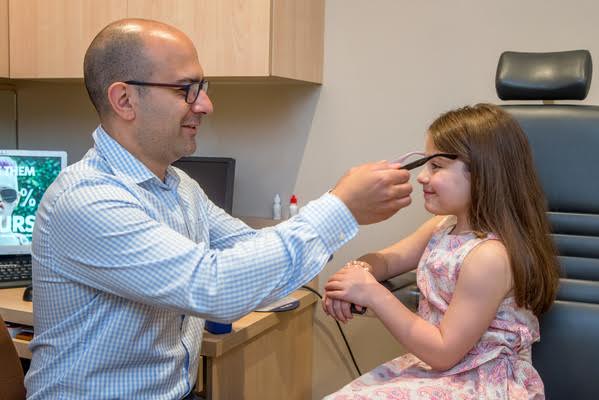THEO Charalambous has a rewarding job helping people see the world clearer.
The passionate optometrist and OPSM franchise owner stressed the importance of having regular eye-checks from a young age.
“Eighty per cent of children’s learning is visual, however our research has shown that a large percentage of parents are unaware of the importance and frequency of eye testing for their children and are oblivious to the adverse effects that neglecting eye tests could have on their children,” Theo said.
Australian parents of children aged three to 10 aren’t prioritising their child’s vision like other health matters, such as immunisation or dental care. More than a third (36 per cent) of Australian children haven’t had their eyes tested in the past two years, and even more alarmingly; more than one in five (21 per cent) have never had their eyes tested.
“Children should be getting their eyes tested from at least three and a half years old, and yearly thereafter during school years. We can also examine children younger than three and a half if there are any concerns,” he said.
“We commonly have children who have focussing issues at near distances. This often goes undiagnosed as their overall ability to see is fine, it is just a strain that affects reading and writing. This will affect a child education and behaviours at school and can be easily avoided.”
Theo said early detection was key.
“With early detection at a young age, most vision problems can be corrected with simple treatments such as and including eye exercises or wearing low prescription glasses for a short period of time.”
OPSM research shows ambivalence towards children’s eye health, revealing that:
* One in six (17 per cent) of Australian children (aged 3-10) have experienced eye problems.
* Just over one in 10 (14 per cent) actually know that an eye test is recommended at least every two years.
* Australian children are less likely to have had their eyes tested in the past two years (57 per cent) than to have been to a dental check-up (77 per cent) or had their feet sized for shoes (73 per cent).
* Half of parents (50 per cent) are unaware that disruptive behaviour may be a symptom of eye problems.
* A similar amount (49 per cent) are unaware that consistently underperforming at school may be a symptom of eye problems.








